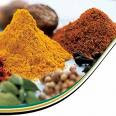 We're often told, "You should sleep on it" before you make an important decision. Why is that? How does "sleeping on it" help your decision-making process?
We're often told, "You should sleep on it" before you make an important decision. Why is that? How does "sleeping on it" help your decision-making process? Conventional wisdom suggests that by "sleeping on it," we clear our minds and relieve ourselves of the immediacy (and accompanying stress) of making a decision. Sleep also helps organize our memories, process the information of the day, and solve problems. Such wisdom also suggests that conscious deliberation helps decision making in general. But new research (Dijksterhuis et al., 2009) suggests something else might also be at work — our unconscious.
Previous research suggests that sometimes the more consciously we think about a decision, the worse the decision made. Sometimes what's needed is a period of unconscious thought — equivalent to "sleeping on it" according to the researchers — in order to make better decisions. Here's how they study this phenomenon:
"[... In a] typical experiment demonstrating this effect, participants choose between a few objects (e.g., apartments), each described by multiple aspects. The objects differ in desirability, and after reading the descriptions, participants are asked to make their choice following an additional period of conscious thought or unconscious thought. In the original experiments, unconscious thinkers made better decisions than conscious thinkers when the decisions were complex."
The researchers suggest that unconscious thought, contrary to the way many of us think about it, is an active, goal-directed thought process. The primary difference is that in unconscious thought, the usual biases that are a part of our conscious thinking are absent. In unconscious thought, we weigh the importance of the components that make up our decision more equally, leaving our preconceptions at the door of consciousness.
So this is all fine and good, but how you do take laboratory findings and adapt them to a real-world experience to show that unconscious thinkers think better (e.g., with less distortions or biases)? One way to do this is to look at sports, because our weighting of different components is done beforehand and individually — not as an artificial variable manipulated by the researchers.
Each week over a period of 6 weeks, the researchers took 352 undergraduates from the University of Amsterdam and asked them to predict the outcome of four different upcoming soccer matches. Participants expertise about soccer was measured, and then they were asked to predict the result of each of the four upcoming soccer matches.
"[Then] participants were divided into three experimental conditions. In the immediate condition, participants saw the four matches on the computer screen and were asked to provide their answers in 20 s[econds].
"In both the conscious-thought and the unconscious-thought conditions, participants saw the four matches on the computer screen for 20 s[econds] and were told they would have to predict the outcomes later on.
"Conscious-thought participants were told they had an additional 2 min to think about the matches. Unconscious-thought participants were told they would do something else for 2 min and performed a two-back task designed to occupy conscious processing."
A second experiment was conducted on another group of undergraduates to replicate the findings and understand more about the underlying process.
What did they find?
"These experiments demonstrate that among experts, unconscious thought leads to better predictions of soccer results than either conscious thought or quick, immediate guesses.
"Experiment 2 sheds light on why this may be so: Unconscious thinkers seem to be better at using the appropriate information to arrive at their estimates. Unconscious thinkers who had more accurate knowledge about the single best prediction criterion (world ranking) made better predictions. This was not true for conscious thinkers or for immediate decision makers."
Just to emphasize this finding — if you're an expert and you had extra time to think about your decision in the area of your expertise (conscious thinker) or had to make a quick decision, you made worse decisions than those who were unconscious thinkers. The researcher hypothesize that conscious thought can lead to poor weighting in decision-making — the more you think about something, the more your biases interfere with good decision-making.
Unconscious thinkers in this experiment appear to weight the relative importance of diagnostic information more accurately than conscious thinkers did.
As always, these results must be taken with a grain of salt. The experiment was conducted only on undergraduates and may not generalize to other age groups or people with different educational backgrounds. Furthermore, other research has not found a significant performance difference between unconscious thinkers and conscious thinkers, and unconscious thought is not always the mode to rely on when faced with a complex decision (e.g., you can't use this for gambling and certain kinds of information).
But for certain kinds of decisions — those that are complex and where you have some expertise — "sleeping on it" may be more helpful than spending minutes or hours of conscious thought on it. The brain makes good unconscious decisions, when we let it.






